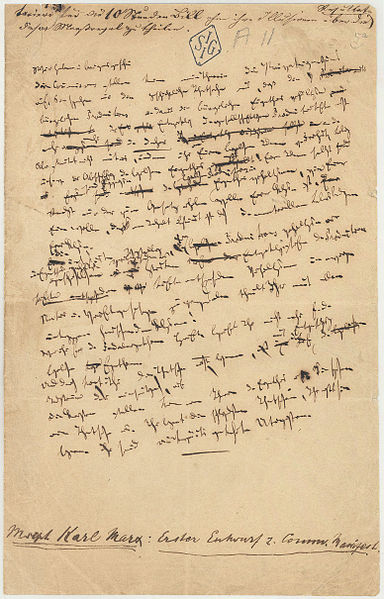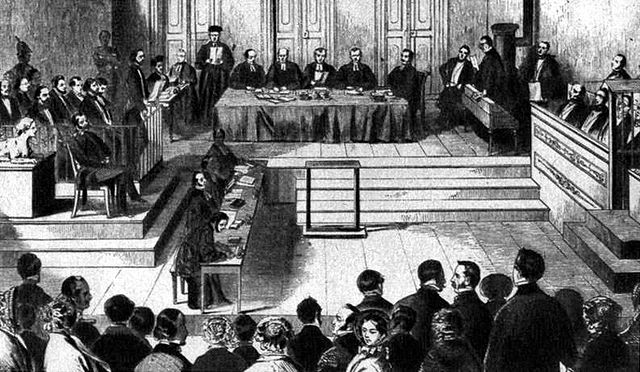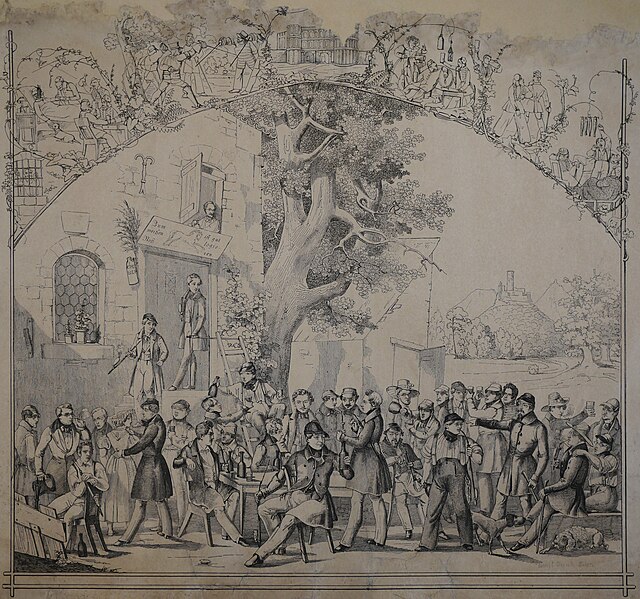The Communist Manifesto, originally the Manifesto of the Communist Party, is a political pamphlet written by Karl Marx and Friedrich Engels, commissioned by the Communist League and originally published in London in 1848. The text is the first and most systematic attempt by Marx and Engels to codify for wide consumption the historical materialist idea that "the history of all hitherto existing society is the history of class struggles", in which social classes are defined by the relationship of people to the means of production. Published amid the Revolutions of 1848 in Europe, the Manifesto remains one of the world's most influential political documents.
Only surviving page from the first draft of the Manifesto, handwritten by Karl Marx
A scene from the German March 1848 Revolution in Berlin
Immediately after the Cologne Communist Trial of late 1852, the Communist League disbanded itself.
Following the 1917 October Revolution, Marx and Engels' classics like The Communist Manifesto were distributed far and wide.
Karl Marx was a German-born philosopher, economist, political theorist, historian, sociologist, journalist, and revolutionary socialist. His best-known works are the 1848 pamphlet The Communist Manifesto and the three-volume Das Kapital (1867–1894); the latter employs his critical approach of historical materialism in an analysis of capitalism and is the culmination of his intellectual efforts. Marx's ideas and theories and their subsequent development, collectively known as Marxism, have exerted enormous influence on modern intellectual, economic and political history.
Marx in 1875
Marx's birthplace, now Brückenstraße 10, in Trier. The family occupied two rooms on the ground floor and three on the first floor. Purchased by the Social Democratic Party of Germany in 1928, it now houses a museum devoted to him.
Jenny von Westphalen in the 1830s
Trierer students in front of the White Horse, among them, Karl Marx.








